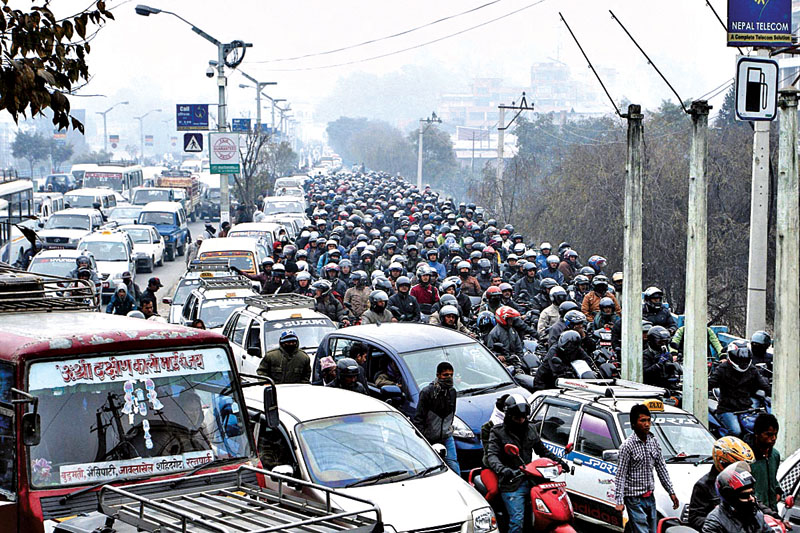Fuel shortage hits water supply in Valley
Kathmandu, October 9
Acute shortage of fuel and increasing power-cuts have severely affected water supply in the Kathmandu Valley.
Milan Kumar Shakya, chief of Water Operation Division under Kathmandu Upatyaka Khanepani Limited, told The Himalayan Times that water treatment plants had shortened treatment cycles due to the fuel crisis.
“KUKL is facing difficulty operating tube wells to generate water and treating it before being supplying it to households in the Valley. We either need regular power supply or adequate fuel to run generators to operate tube wells and water treatment plants,” he said.
Shakya said KUKL has requested the government for adequate fuel supply to ensure smooth supply of drinking water in the Valley . “We do not have round-the-clock power supply and are in dire need of fuel,” he informed. KUKL operates as many as 59 tube wells with per day capacity of 60 million litres of water in the Valley, besides 12 water trucks.
KUKL needs around 20 liters of diesel per hour to run a tube well. “Water supply system will be paralysed if sufficient fuel is not provided to us soon,” he said.
Water supply by private tanker operators has also been affected after more than 100 tankers have been grounded for want of fuel. This has led many people to drink unsafe water at a time when the Kathmandu Valley has just got a respite from cholera outbreak.
All these are likely to worsen water crisis in the Kathmandu Valley that has been reeling under water crisis even in normal times.
The Valley’s water demand is more than 320 million litres per day, while KUKL has been supplying only about 68 million litres every day during the dry season and 118 million litres during the rainy season. There are 166,000 taps in the Valley while water leakage is about 20 per cent, said a KUKL report.
Garbage production drops due to reduced public movement
KATHMANDU: The capital has been generating less garbage due to reduced public movement. Rabin Man Shrestha, chief of Environment Management Division at the Kathmandu Metropolitan City, said daily waste generation has reduced to around 250 tonnes from 400 tonnes in Kathmandu due to the reduced public movement following petroleum shortage. “Waste management system has not been affected as of today as we are getting fuel from Sajha Petrol Pump and National Trading Corporation for our garbage trucks. However, fuel supply to the KMC has dropped by around 50 per cent,” he said. Shrestha informed that waste collection by private garbage collectors in some areas like Dilli Bazaar and Nagpokhari were affected to some extent due to the fuel crisis.






